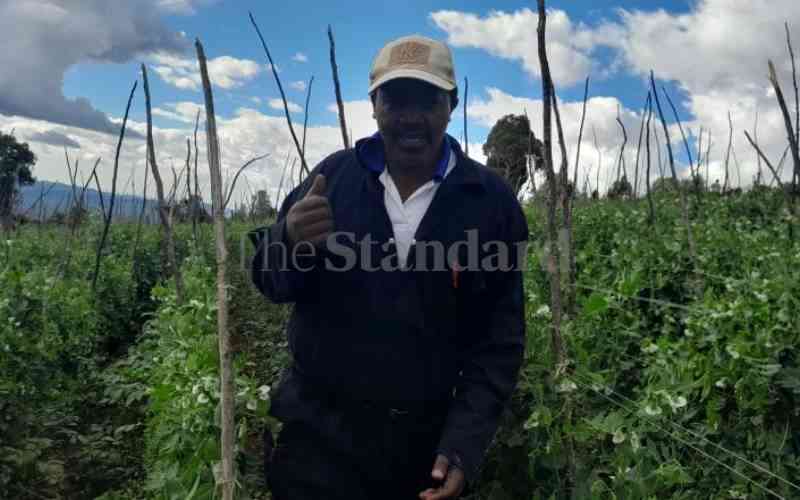×
The Standard e-Paper
Join Thousands Daily

In the foothills surrounding Mount Kenya, we caught up with Samson Githinji, a horticulture farmer in Kiambogo village in Meru County on his sprawling 20-acre farm. Githinji has transformed the landscape, cultivating snow peas destined for European markets.
Githinji's farm not only thrives but also contributes to water conservation. Githinji proudly shared, "We tap water from natural sources and no longer use timber, ensuring both our crops and the surrounding habitat flourish."